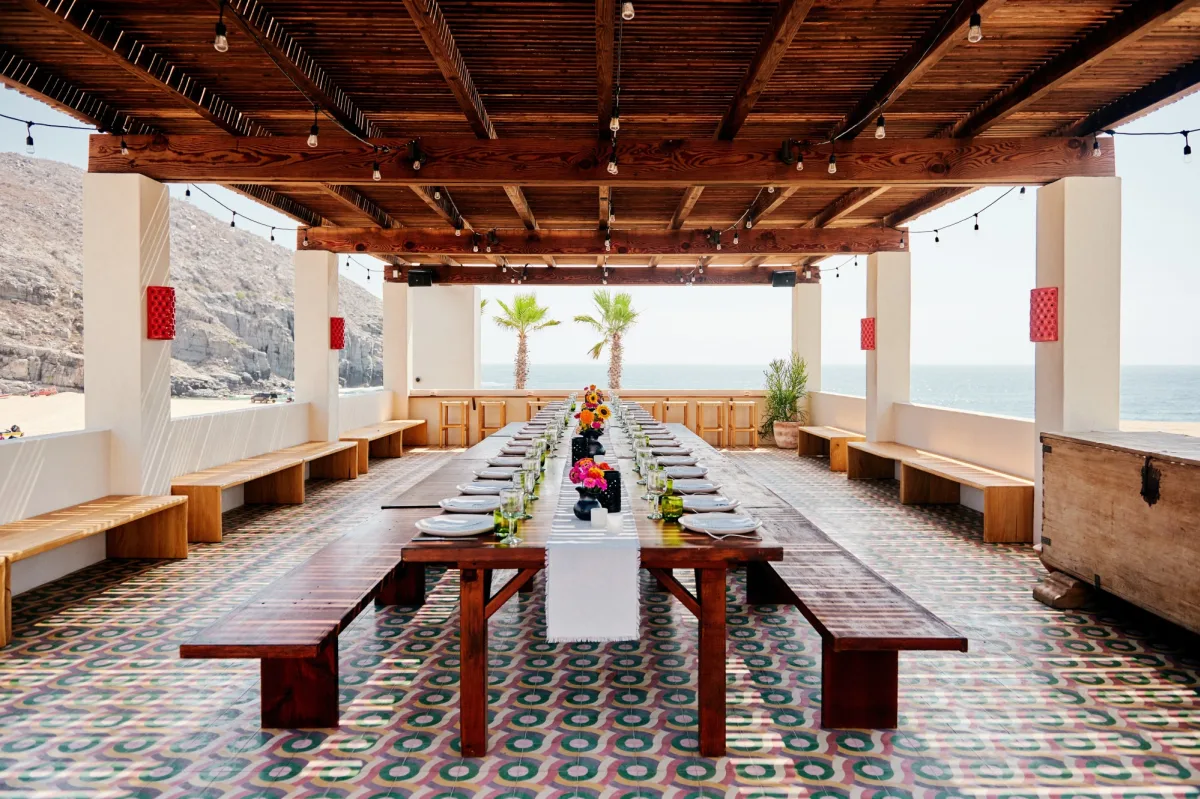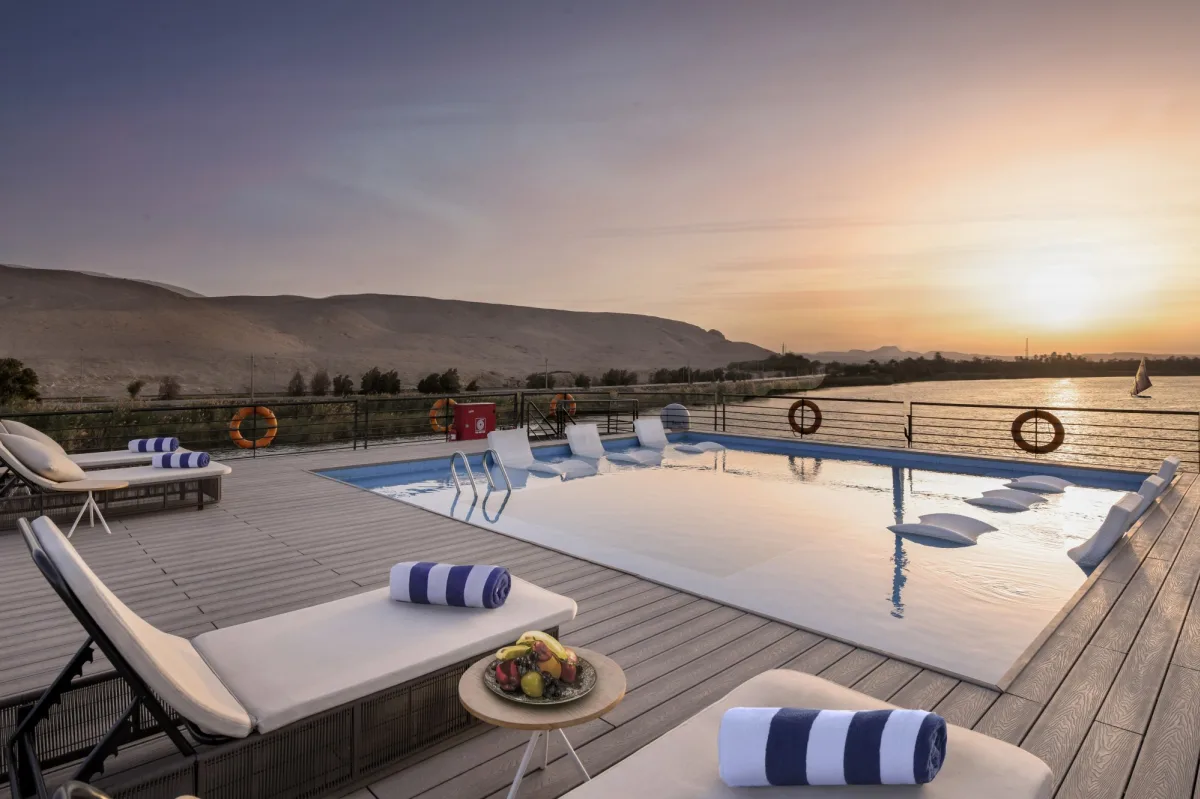There are plenty of fun, exciting elements of planning a trip — booking hotels, recommending restaurants, making tour arrangements and the like. But don't underestimate a less obvious (but very lucrative) sector of the job: group bookings.
Group bookings, sometimes referred to as room blocks, describe a travel booking for — you guessed it — a group of people (more than a single family or couple). You'll often hear room blocks associated with hotels for wedding parties, or group bookings for corporate travel. Group bookings can be tricky and sometimes necessitate extra legwork, but often result in big-ticket commissions. Consider it a form of cross-training for travel advisors, enabling you to build up multiple muscles, all at once.
But how exactly do room blocks work, and what are the benefits of booking them? What are room blocking best practices? Here, we’ve laid it all out for you. Consider this your ultimate guide to group bookings — a group booking 101, if you will.
And, when you're ready to take your expertise to the next level, check out our expert tips on group bookings.
How do room blocks work?

Image courtesy of Amanyara
Room blocks are made in the context of a group trip, when multiple people are traveling on the same itinerary. Typically, a room block involves at least eight rooms. A group booking helps ensure that all travelers in the group receive a room at the given hotel (or cruise) — often at a reduced rate and in the same section of the hotel, if applicable.
Group bookings are generally made for occasions such as:
Weddings
Family reunions
Multi-generation trips and family travel
Corporate retreats / events
Team trips (sports teams, dance groups, etc.) and other group travel
Large bookings provide the hotel or resort with significant revenue (think room blocks for weddings). As a result, you, the travel advisor, collect a hefty chunk of commission. You’re essentially amping up your earning potential, but with fewer individual bookings.
How are room blocks priced?

Fora Advisor Kerry Boyd
The first thing to do is check with your client about who will be paying. Will a single person be providing a lump sum? Or will each individual attendee contribute their share? Group bookings lock in a fixed rate, and each room is priced at the same amount.
It’s worth noting that booking with boutique hotels can tricky here. These hotels usually have fewer rooms, so a group booking inevitably means taking up a larger percentage of what they have available. As a result, prices can skew a bit higher; and boutique hotels may require a larger deposit. (In some cases, your client would book the entire hotel, referred to as a 'buyout' or 'exclusive use.')
How do I make a group booking?

Image courtesy of Hotel San Cristóbal
Knowing who to speak to, plus a few other key pieces of information, is really all you need to group-book successfully. Here’s the step-by-step process we recommend:
Contact the hotel at which the group will be staying. Ask to speak with the Director of Sales (DOS), the Groups Division or the MICE (Meetings, Incentives, Conventions and Events) Division — these are the folks who handle group rates.
Tell the hotel the group’s check-in/out dates, plus the number of rooms you’d like to block.
Ask about the pre- and post-night rates. Often, guests within a group like to either arrive early to a destination, or extend their stay after the event has ended. Sometimes hotels offer reduced rates in these instances.
Clarify how reservations and payments are made. This system tends to manifest in two ways:
A hotel may give you a code or reference link to provide your clients, each of whom would then use that code / link to book their rooms.
A hotel may expect you to book the room block and make a deposit. You will then be expected to maintain the room block guest list, and update it as needed, all the while ensuring the hotel remains up-to-date.
Mind the attrition clause. This clause lays out the potential financial penalties should a certain number or percentage of rooms within the room block remain unfilled. In other words, if guests cancel, or if an insufficient number of guests sign up for the trip, the hotel may incur a penalty for each room that ends up empty.
This framework is another reason it is so important to vet your clients. The most difficult part of a group trip is getting people to sign up. So if your client — a large tech company, say — is wanting to plan a faraway retreat for its employees, but can’t seem to compile a promising list of RSVPs, or lacks clear communication in general, this is likely not a client you want to take on. Remember: you are not responsible for a client’s volatility, nor should you be. Though you are the travel advisor, booking is still a two-way street, especially when it comes to group bookings.
When should I make a group booking?

In general, there are some times of year when it’s best to avoid group bookings:
Festive Season (aka the holidays) — already an insanely busy time, with a low likelihood of scoring preferred rates
A local holiday season (e.g., Chinese New Year) — same as above
Summer — people usually already have individual plans, so it can be difficult to fill a room block (unless, of course, you’re booking a multi-generational family trip)
Otherwise, anytime is fair game!
Extra credit: what about non-hotel group bookings?

Image courtesy of HISTORIA the Boutique Hotel Nile Cruise
Group bookings extend beyond just hotels. Cruises are popular options. Or a client may want a curated group itinerary complete with restaurant reservations, excursions, activities and multi-city transportation. In these cases, it might be a good idea to enlist a DMC for help.
A DMC, or Destination Management Company, specializes in a particular location — Greece travel, say, or travel to Egypt. (Travel advisors love DMCs.) They serve as an intermediary between a travel advisor and local suppliers (hotels, restaurants, etc.), with whom they’ve developed relationships. DMCs provide on-the-ground, attentive and individualized support. They can help navigate group bookings at local restaurants, hotels, tour outlets and the like. Plus, a DMC makes a fabulous point of contact for your client if they need immediate support when traveling.
A note on restaurants. Some restaurants cannot accommodate large groups, or they may require reservations. So, it’s crucial to plan group meals beforehand and secure reservations. Sometimes, restaurants offer one fixed rate, or charge per person for group meals. When negotiating these costs, it’s best to keep alcohol separate. Food and non-alcoholic beverages can be included, but suppliers like to inflate prices to account for alcohol. You’ll be better off having guests pay separately for alcohol — à la carte.
You’ve got this!

Fora Advisor Gaya Vinay
These guidelines may seem like a lot to digest, but with a little practice, group bookings can become second-nature. You’ll soon find that group bookings are really just like standard bookings, but with more commission, and perhaps a bit more things to keep track of.
Happy booking!
When you become a Fora Advisor, we'll be with you every step of the way. And it doesn't stop there, of course. We'll help you with everything from marketing yourself to clients to building your book of business (tools, tech and templates included). Plus, you'll join a warm community of people who share your passion for travel.
Ready to take your room block / group booking expertise to the next level? Learn more about why group bookings are great.




